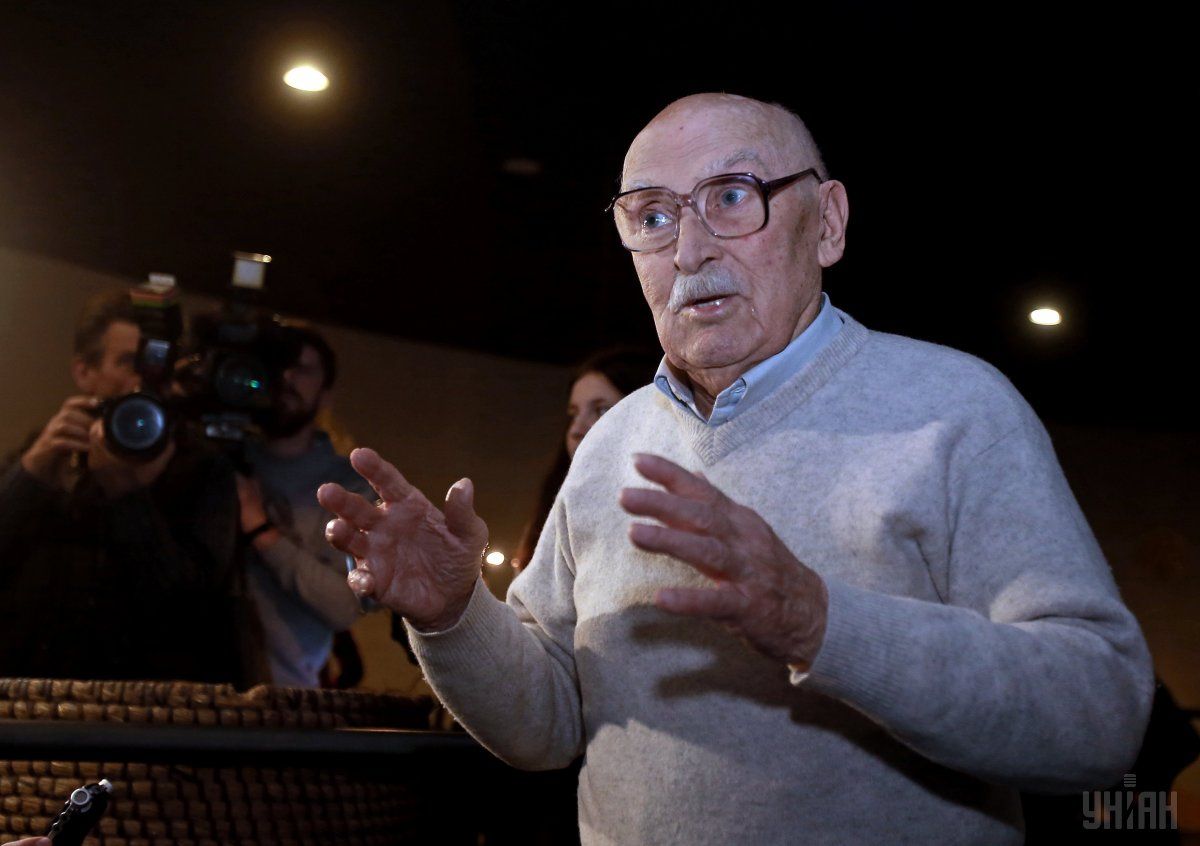
Holodomor survivor Mykola Onyshchenko: Hitler transformed Germans once. Now that is what Putin has done to the Russians
The Holodomor famine, an artificial measure masterminded by Joseph Stalin, claimed the lives of about 10 million Ukrainians, forever remaining a horrible black spot in the country’s history. On the eve of the 83rd anniversary of the genocide of Ukrainian people, UNIAN spoke with a witness of that tragedy.
The past of Mykola Onyshchenko, who will turn 91 in less than a month, deserves a book to be published. This is a man who survived two famines, got his way out of a concentration camp in Germany, after which he was sent to a Soviet one in the Urals (that was a fairly widespread practice in the Soviet Union, when all POWs and prisoners of German death camps were automatically suspected of treason). However, he graduated from school and went on to study at the university. Mykola has mastered French, German, and Polish. He is now studying English, claiming that he does not need a translator anymore at a conversational level.
He has raised three kids and six grandchildren. Surprisingly energetic for his age and a very interesting man to talk to, he calls himself a "person from the 20th century, whose life is nearing a completion" but he also reminisces very clearly on some of the things he remembers from the past, just like watching the slides minted into his own memory...
In the late 1920s, little Mykola was under three years old. Along with his parents, he lived in his grandfather's house in the village of Novovasylivka, just 7 km away from Berdyansk in Donetsk region. "I still remember how my family lived. Once I climbed onto the attic and was so delighted with what I saw: huge pieces of ham all rowed up, canned pig fat, bacon, sausage, and honey. We had calves walking around our backyard, also geese, and foals. We had a huge cherry garden and a vine," says Mykola.
His grandfather was not a rich man and his family lived in an ordinary house. But back in those days, almost every Ukrainian villager could boast such reserves. Shortly Onyshchenko’s parents moved to another small village, where they got caught up in Communist-imposed “collectivization” – that’s when the government took away people’s land and cattle, "cut" their gardens, all in order to make farmers go out to work at collective farms.
The Holodomor started when Mykola was seven. It was the year of 1932 – the Committee of the Poor’s officials took away people’s bread. "They were searching for this bread at homes of the already hungry people. By that time, almost no one would remember the taste of meat," says Mykola, stressing that it was sheer violence.
Only in spring came some relief when there was quinoa and buds on the trees. However, by the springtime, death had already taken lives of most of the villages...
Every year, Ukrainians dedicate last week of November to honoring the memory of those who did not survive – the Holodomor victims. And the stories of a small number of witnesses of those terrible events are extremely important for our understanding of the scale of the tragedy, in order to raise awareness of today’s generation.
Historians tend to believe that the Holodomor was Stalin's revenge to Ukrainians who rebelled against the Soviet regime, particularly against collectivization. Do you agree?
That’s exactly the case. Of course, the villagers were rebellious. For example, my grandfather had two adult sons and the third younger one. I remember how we used to live, we had all kinds of food in our house. The adults would go to the Berdyansk market, sometimes taking me along. Everything was sold on that market - bacon, milk, honey… They would buy me a bagel, some handkerchief, and there would also be a little money left. But when they started taking everything away, to force them to work as collective groups (initially, there were even no collective farms established), how do you think, could the villagers not stand up to that? Once the farmers are deprived of their horses, sheep, their land – this is the end for them! Of course, people attempted to hide at least some food in their gardens, digging holes... But the authorities would find those caches anyway.
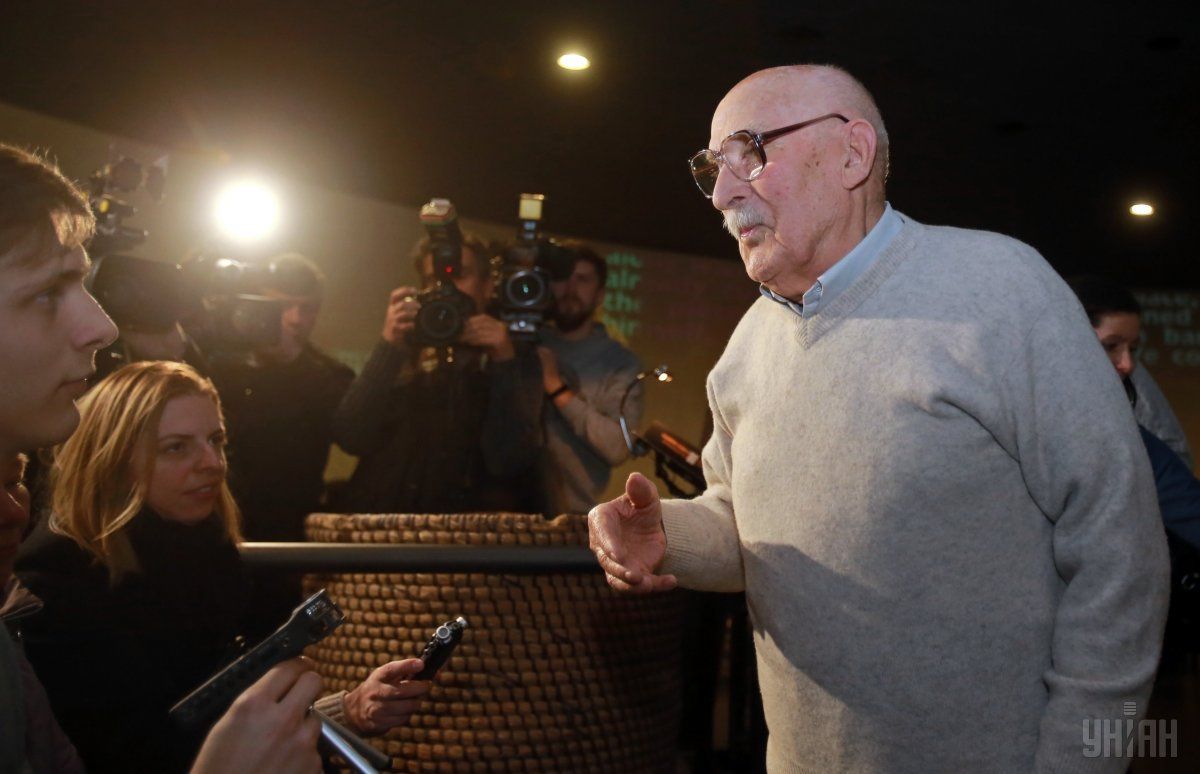
You were only seven years old when the Holodomor began. When you tell people about this tragedy, what do you reminisce on most often?
I reminisce on the day when the authorities came to our house. I am seven and my sister is five. We are inside the house, together with our mother, who tries to hide a bundle with some corn. By the stove there was a barrel with pickles, so she stuffed it there. As she barely managed to do this, these three property verifiers come in. Two of them search the garden and the house, while their senior goes up to my mother and asks: "Where is your corn?" She tells him we have none, but he just doesn’t stop asking. He eventually found the bundle and took it away. My mother jumped up trying to stop him, wailing, and we, too. He pulled us outside and we saw the inspectors coming out from our neighbors’ houses. People were just screaming and weeping.
I also remember, though I probably shouldn’t tell this... Little me, standing next to a school, and there is a pile of manure on the ground. And there is some grain right in it. So I am standing there, thinking whether it is alright to pick it out. I never dared but I considered doing it. It was terrifying. I am telling this so that you understand what this famine was like...
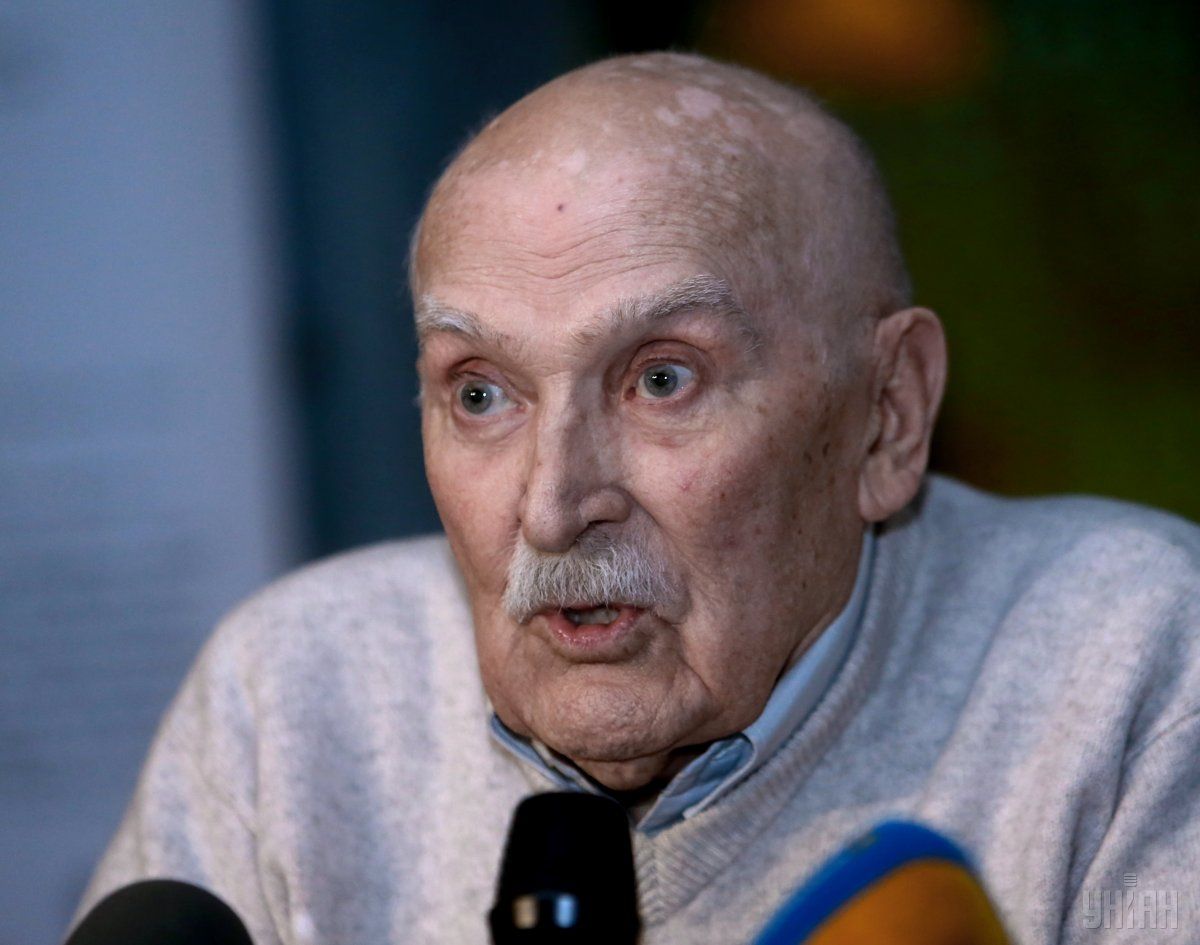
When people talk about the Holodomor, they often touch upon the issue of cannibalism, which was a result of a general impoverishment. Have you encountered anything of this kind?
There were rumors that people ate children. They even told us someone was caught in our village... That is why my mother said I couldn’t leave house, even to visit my neighbors.
How did your family survive the Holodomor?
All my family managed to survive. Probably because we were “the richest” in our village at the time. My father worked at the port of Berdyansk. There were no other workers in our village, only farmers. Father brought home some food from the port, although there was no bread - I do remember this clearly. He would also bring some small fish and my mother would make pancakes. This was what we ate and so we survived. My grandfather’s family also survived because he was able to hide some bread.
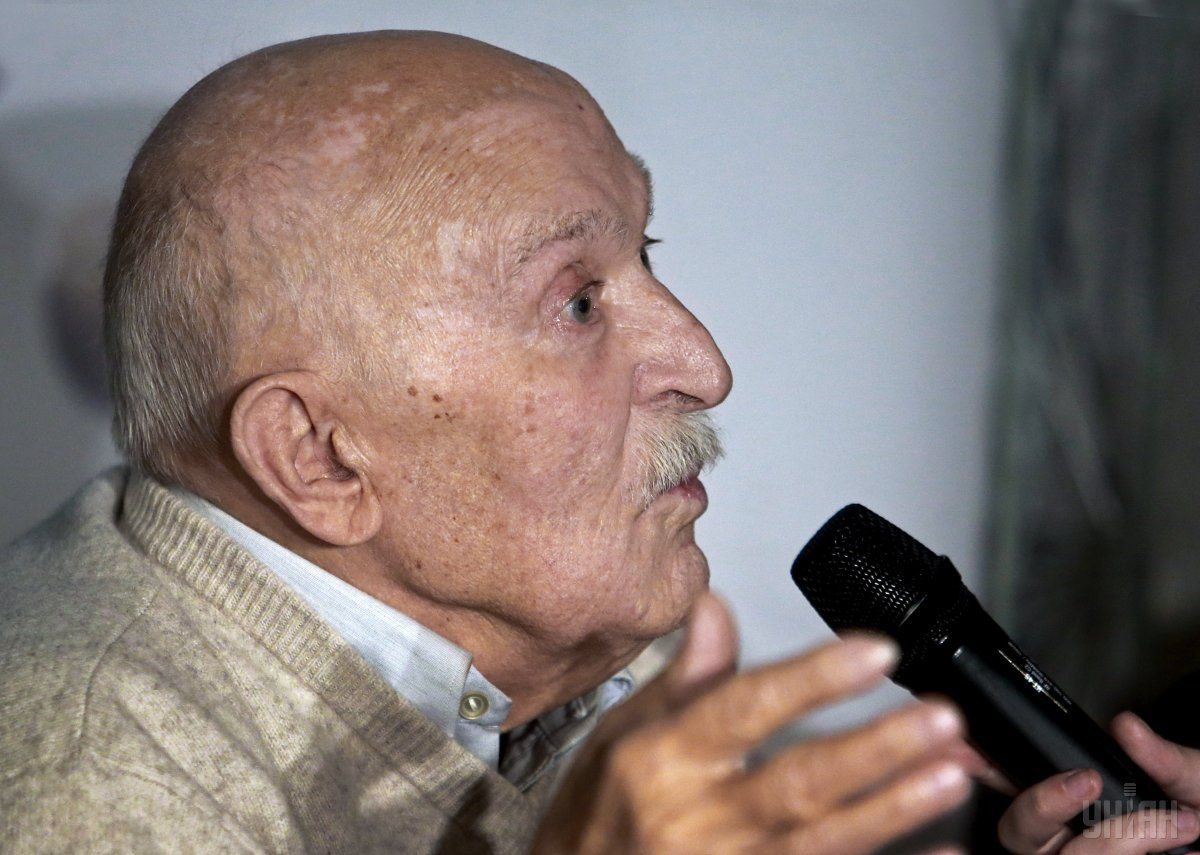
Did people genuinely believe that Stalin did not know about their suffering, and that it was all just an initiative of local authorities?
There was such talk, of course. They said that it was all local authorities. People wrote letters to Moscow… And you remember just how people wept when Stalin died as if he was their father! But I didn’t cry because I knew who he was, I realized that the monster died. And my grandfather also believed the Soviet regime was an enemy of humanity, just as I do.
My grandfather was actually initially glad when the Germans came. That’s despite the fact that he fought in World War I and was a POW. However, he had not yet realized that it was not just the regular Germans, that they were the Nazis, with the idea imposed by Hitler that they are the superior nation. When my grandfather realized it, he became an enemy of the Germans. That's how today the Donbas people have realized that the Russians came, and they brought nothing good along...
The famine in 1932-1933 was not the only one you had gone through. You were in German captivity, and there was famine there, too...
When the Germans came, I was 15 years old. They sent me to a German concentration camp. There the famine was even worse. I was like a living corpse.
We, the POWs, worked in paint industry and there was that old lady in the medical unit who saved me. One day she opened the door, called me up and gave a bread bun. Can you imagine that? A whole bun! I could feed myself for a month! I hid that bun and sucked on it slowly. So while some Germans were killing people, the others saved some lives. In general, I respect the Germans. They are disciplined, honest, hardworking people. The Germans are good people, but they are very amenable to propaganda, and Hitler transformed them. Now Putin has done this to the Russians.
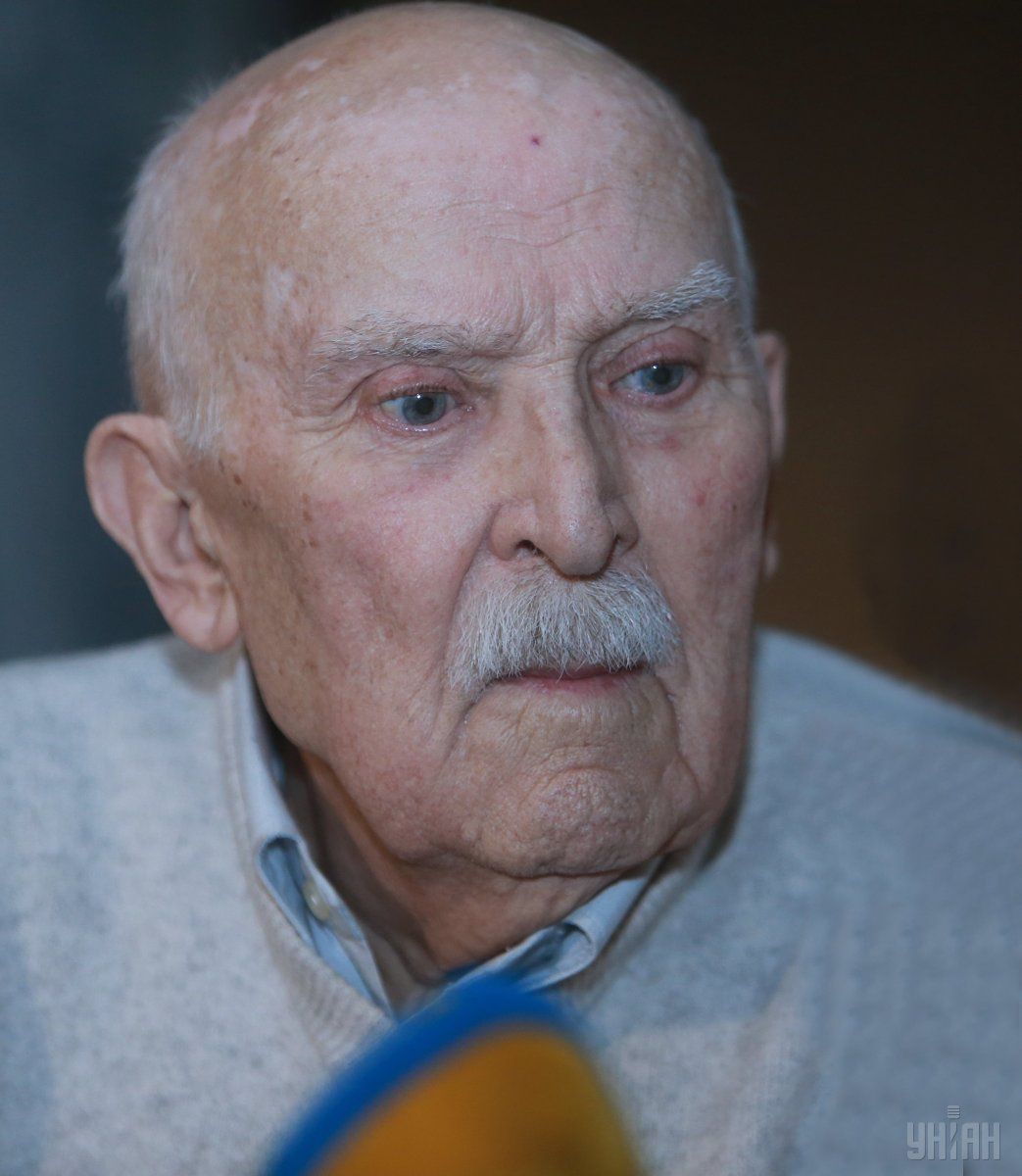
In the camp, I spent a little over six months, and it was the Americans who liberated us. They took those who had been brought from the Soviet Union to the camps for displaced persons, they offered new IDs, promised jobs in the U.S., Australia - anywhere. To these camps also came representatives of the Red Army and also talked to people. By the way, there was this one guy who even told us: "Guys, don’t go back to the USSR. First, you'll be deemed enemies there, and secondly, you will be sent to camps in the Urals or Siberia." We could not believe it, we just wanted to go back home, only back to the Soviet Union!
When we were brought back on an airplane and landed in the Soviet occupation zone, our own soldiers called us traitors, saying that we had been working "for Germany’s victory." That's when we actually felt that we were enemies. We were sent to a Soviet concentration camp in the Urals, but I escaped on my way there.
Where did you go?
To Kyrgyzstan. I graduated school, then I went to the university.
Were you a member of the Communist Party?
I was dragged there. Why? Because they could not appoint me a chief specialist at the factory and I could not write a scientific paper had I not been a party member. Before the collapse of the Soviet Union, I remained a very helpful worker. I was a chief of a large forging and pressing workshop, where more than 100 people worked under my supervision. I was also a chief economist at Luhanskteplovoz train factory, where 36,000 people worked.
There was a state-run economy, and I proved that market economy could exist in parallel lines. I even spoke about it with the Pravda newspaper reporter, and also to the Institute of Management, which was then headed by Academician Trapyeznikov [Vadym Trapyeznikov, the Soviet Academician]. This Institut was directly subordinate to the Central Committee of the Communist Party. Trapyeznikov even went with my suggestions to the Central Committee (of course presenting them as his own), but they never listened to him.
When I was head of production, the output increased twice and scientific papers were written on my developments to improve working conditions. In some things, they just couldn’t do without me. Everyone knew this, the newspaper wrote about this, and one time they even wanted to appoint me the secretary of the District Party Committee. However, it was impossible as the KGB said that I was "unreliable". After all, you know what we had to write in our CVs? I had to write that I was a POW at the German death camp and that it was the Americans who liberated me. That's why, up until the collapse of the USSR, I was labeled as “unreliable”. They didn’t hinder with my work but when it came to granting me a status of a Professor, I was sacked due to this fact in my biography.
You were born in eastern Ukraine. When hostilities erupted three years ago, you left your home there. Do you reflect on the causes of this conflict?
From my own experience, I can tell you something about each nation, because I know French people well, the Poles and Italians… But I don’t want to say anything about the Russians...
Russia has prevailed in Donbas long before these events started because there were a lot of Russians there. In the villages, there were mostly Ukrainian, but in the cities there were Russians. Everything Ukrainian that had been there was gone – the books, the language… See, it is very important what language you speak. When I spoke German, I felt a little German, and when I spoke Polish – I felt a little Polish. When the Ukrainian in Donbas - and there is about 60% of them there - speak Russian, they just cease to be Ukrainians, oddly enough. To remain Ukrainian, it is important to speak your native language.
Iryna Shevchenko

